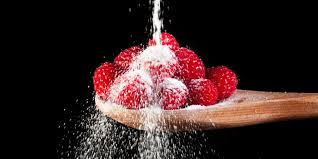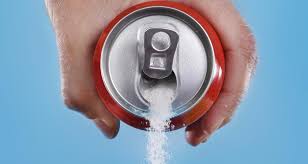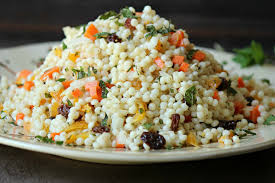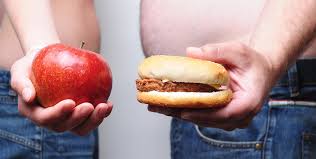Content of the Article
High blood sugar causes some negative effects on the body. That's why the question of "how does blood sugar drop" is one of the most curious topics.
High blood sugar occurs when the body is unable to effectively transfer sugar from the blood to the cells. In the short term, it causes drowsiness and hunger. Our bodies may not be able to effectively lower blood sugar over time. This leads to the disease known as type 2 diabetes among the people.
Diabetes is an increasingly common health problem and affects many people. In fact, we can say that it is the underlying cause of many diseases. High blood sugar can cause hardening and narrowing of blood vessels. This triggers a heart attack or stroke.
What is Blood Sugar?
Blood sugar level is the amount of glucose in the body. Glucose is the simpler form of sugar, which is a carbohydrate. Blood sugar is found in the bloodstream and distributed to the cells to give the body energy.
Blood sugar is normally found in very small amounts in humans and animals. In fact, there are only 4 grams of glucose in our body at any given time. Our body does its best to stay at this normalized level and regulate it.
The blood sugar level is at its lowest when we wake up in the morning. When the first meal of the day is eaten, a few milligrams will rise in a few hours.
Blood sugar is absorbed in the bloodstream in the small intestine and transported to the liver where the liver cells absorb most of the glucose and convert it into glycogen. Glycogen is stored in the liver.
Our entire body uses blood sugar. The brain needs it the most, especially since neurons in the brain use blood sugar as their primary energy source. When the level gets too low or too high, it weakens the nervous system considerably.

Having Normal Blood Sugar Level
The average person without diabetes will have blood sugar levels somewhere in the normal fasting range of 70 to 99 mg/dl (or 3,9 to 5,5 mmol/L). For people with diabetes, normal fasting blood sugar should be somewhere between 80 and 130 mg/dl (4.4 to 7.2 mmol/L).
After eating, the standard blood sugar count for someone without diabetes is below 140 mg/dl (7.8 mmol/L) and below 180 mg/dl (10.0 mmol/L) for someone with diabetes.
Normal blood sugar level changes slightly during pregnancy. When you are pregnant, the total blood volume rises significantly. This causes a slight dilution of sugar in the blood. Therefore, for pregnant women, the blood sugar level will be slightly lower than normal and this usually does not cause a problem.
It is actually very simple to maintain a normal blood sugar level and prevent its sudden rise and fall. A healthy diet and some lifestyle changes are enough. There are some points that should be considered in order to reduce suddenly rising blood sugar.
How Do You Know When Your Blood Sugar Is Elevated?
When blood sugar spikes or stays high for a long time, the following symptoms are seen:
- feeling more dehydrated over time
- lose weight fast
- feeling tired or exhausted often
- Regularly experiencing headaches or migraines
- experiencing bouts of blurred vision
- Feeling the urge to urinate frequently
- Lack of attention
If left untreated, these symptoms become increasingly severe and difficult to control over time. Symptoms of chronic high blood sugar levels that remain high for a long time include:
- Having frequent skin infections
- Increased frequency of vaginal infections in women
- Long-term healing of wounds
- Damage to internal organs, especially kidneys, eyes and blood vessels of the body
- visual impairment
- excessive hair loss
- Severe gastrointestinal problems (such as diarrhea and excessive constipation)
How Does Blood Sugar Lower?

- Reduce your carbohydrate consumption
“How does blood sugar drop?” When we ask, the first thing to keep in mind is to stay away from carbohydrates. Especially from refined carbohydrates.
Carbohydrates are foods that cause blood sugar to rise. When we eat carbohydrates, they are broken down into simple sugars. These sugars then enter the bloodstream. As the blood sugar level rises, the pancreas releases a hormone called insulin and the cells absorb the sugar from the blood.
Refined carbohydratesare processed carbohydrates. Table sugar, white bread, white rice, soda, sugar, breakfast cereals and desserts are all such carbohydrates. These are the carbohydrates that have a negative impact on blood sugar levels. Because it has been stripped of almost all nutrients, vitamins, minerals and fiber. They also have a high glycemic index because they are digested very easily and quickly in the body. This causes blood sugar to rise.
Eating foods that are low in carbohydrates prevents blood sugar spikes.
- Cut down on sugar consumption
Sucrose and high fructose corn syrup Adding sugars to foods, such as sugar, has no nutritional value. These are just empty calories. The body breaks down these simple sugars very easily, causing a spike in blood sugar. It is also linked to the development of insulin resistance. In a sense, you can reduce high blood sugar by staying away from sugar.
- Keep your weight in a healthy range
Being overweight makes it harder for the body to use insulin and control blood sugar levels. This causes blood sugar to rise and, accordingly, the development of type 2 diabetes. being overweight, insulin resistanceIt also triggers the development of Losing weight stabilizes blood sugar.
- Exercise
“How does blood sugar drop?” As an answer to the question, we can say exercise as a lifestyle change. Exercise prevents the rise of blood sugar by increasing the sensitivity of cells to insulin. It also helps muscle cells absorb blood sugar and lower blood sugar levels.
Exercising on an empty or full stomach is effective on blood sugar control. One study found that exercise before breakfast was more effective than exercise after breakfast.
-
Eat fibrous foods
Fiber consists of plant foods that our bodies cannot digest. There are two basic types of fiber: soluble and insoluble. In particular, soluble fiber prevents blood sugar from rising.
Fiber also suppresses appetite by making you feel full. The best sources of soluble fiber include oatmeal, nuts, legumes, some fruits such as apples, oranges and blueberries, and many vegetables.
- For enough water
Not drinking enough water can cause blood sugar spikes. When the body isn't hydrated enough, it produces a hormone called vasopressin. This encourages the kidneys to retain fluid and the body to flush out excess sugar in the urine. It also causes more sugar to be released from the liver into the blood.
How much water should be drunk during the day depends on the needs of the person. Choose plain water over sugar water or soda, as the sugar content will cause blood sugar to rise.
- Eat three meals a day
If you follow the rule of three meals a day, your blood sugar level will remain in the normal range. Eating healthy every four or five hours at three different times throughout the day will keep your blood sugar from getting too low, preventing you from attacking food at other times. skip a mealadversely affect diabetes risk and diabetic patients.
- Use apple cider vinegar
Apple cider vinegar has many benefits. Helping to lose weight, lowering cholesterol, balancing blood sugar are the most important benefits. Studies show that those who consume apple cider vinegar have an increased insulin response and reduced blood sugar spikes. Apple cider vinegar lowers the glycemic index of food, which prevents blood sugar spikes.
- Take chromium and magnesium
Studies show that chromium and magnesium can be effective in controlling blood sugar spikes. Food sources rich in chromium include broccoli, egg yolks, shellfish, tomatoes, and peanuts. Food sources rich in magnesium include spinach, almonds, avocados, cashews and peanuts.
The combination of the two improves insulin sensitivity more than supplementing individually.
-
Eat spices that lower blood sugar
Spices that lower blood sugar include cinnamon and fenugreek. Cinnamon improves insulin sensitivity. It prevents a sudden rise in blood sugar after a carbohydrate-containing meal.
One of the physical properties of fenugreek is that the seeds are rich in soluble fiber. This slows the digestion and absorption of carbohydrates, preventing blood sugar from rising.
- use barberine
Berberineis a chemical extracted from several different plants. It is used for lowering cholesterol, weight loss and blood sugar control.
Berberine decreases the amount of sugar produced by the liver and increases insulin sensitivity. It is as effective as some medications used for type 2 diabetes.
While berberine is fairly safe, consult a doctor before use if you have any medical conditions or are taking any medication.
- Lifestyle changes
Lifestyle changes that prevent blood sugar spikes and lower blood sugar include:
- Look for ways to cope with stress, as stress negatively impacts blood sugar.
- Insomnia causes you to lose control of your blood sugar. Quality and adequate sleep lowers blood sugar.
- Alcohol contains sugar and causes blood sugar spikes. Staying away from alcohol will definitely lower blood sugar.

Foods That Lower Blood Sugar
“How does blood sugar drop?” The changes we examined under this heading were mostly about nutrition. Because there is a serious relationship between blood sugar and nutrition. Therefore, foods that lower blood sugar gain importance. Let's take a look at these foods.
- Broccoli
Sulforaphaneis a type of isothiocyanate with blood sugar-lowering properties. This phytochemical is most commonly found in cruciferous vegetables, including broccoli. Studies show that eating sulforaphane-rich broccoli improves insulin sensitivity and lowers blood sugar.
Additionally, eating cruciferous vegetables lowers the risk of type 2 diabetes. The best way to increase the availability of sulforaphane is to eat broccoli raw or lightly steam it.
- sea products
Fish and shellfish contain protein, healthy fats, vitamins, minerals and antioxidants that balance blood sugar levels.
Protein is essential for blood sugar control. It helps slow down digestion and prevents post-meal blood sugar spikes. Eating fatty fish such as salmon and sardines improves blood sugar control.
- Pumpkin and pumpkin seeds
Brightly colored and packed with fiber and antioxidants, zucchini is an excellent food for balancing blood sugar. Pumpkin seeds It's packed with healthy fats and proteins. Therefore, it lowers the blood sugar level.
- Nuts
Researches, nuts shows that eating it can lower blood sugar levels.
- Okra
OkraIt is a rich source of compounds that lower blood sugar, such as olisaccharides and flavonoid antioxidants. Its seed has long been used as a natural remedy in the treatment of diabetes due to its powerful blood sugar lowering properties. Also, okra contains the flavonoids isocercitrin and quercetin 3-O-gentiobioside, which help lower blood sugar by inhibiting certain enzymes.
-
Flax seeds
Flax seedsIt is rich in fiber and healthy fats. It lowers blood sugar.
- pulse
Beans ve lentil Legumes such as legumes are rich in nutrients such as magnesium, fiber and protein that can help lower blood sugar. They are especially rich in soluble fiber and resistant starch. These help slow digestion and improve blood sugar response after meals.
- Sauerkraut
Sauerkraut Fermented foods like these are packed with health-promoting compounds like probiotics, minerals, and antioxidants. With this content, it shows improvement in blood sugar and insulin sensitivity.
- Chia seeds
Chia seeds Eating lowers blood sugar. Studies have also found that consumption of chia seeds improves insulin sensitivity along with lowering blood sugar.
- Berry fruits
Berries, the common name for fruits such as raspberries, blackberries, strawberries, and blueberries, are loaded with fiber, vitamins, minerals and antioxidants. Therefore, they are great foods to lower blood sugar.
- Avokado
AvokadoIn addition to being a delicious fruit, it provides important benefits for balancing blood sugar. It is rich in healthy fats, fiber, vitamins and minerals. With this content, it helps to balance blood sugar levels.
- Oats and oat bran
Eating oats and oat bran has blood sugar lowering properties. It helps balance blood sugar due to its high soluble fiber content.
-
Citrus
Although many citrus fruits are sweet, research shows that they can help lower blood sugar levels. CitrusThey are low glycemic fruits because they do not affect blood sugar as much as other types of fruit such as watermelon and pineapple.
Citrus fruits such as oranges and grapefruit are full of fiber and contain plant compounds such as naringenin, a polyphenol with powerful antidiabetic properties. Whole citrus fruits help increase insulin sensitivity, reduce HbA1c and protect against the development of diabetes.
- Kefir and yoghurt
Kefir ve yoghurtare fermented dairy products that can help stabilize blood sugar. Studies have found that eating kefir and yogurt improves blood sugar control.
- egg
eggIt is an exceptionally nutritious food that is a source of concentrated protein, healthy fats, vitamins, minerals and antioxidants. Studies have shown that eating eggs can help stabilize blood sugar.
- Apple
AppleContains soluble fiber and plant compounds such as quercetin, chlorogenic acid and gallic acid. All of these compounds help stabilize blood sugar and protect against diabetes.
- Limon
Limon contains high levels of vitamin C. This fruit also provides other nutrients such as vitamins A and B, magnesium, sodium and dietary fiber. Soluble fiber stabilizes blood sugar levels by limiting the amount of sugar taken up by the blood. In addition, it is a fruit with a low glycemic index. This will prevent sudden spikes in blood sugar levels.
- Cranberry
Cranberries contain a good amount of fiber and antioxidants. It also helps regulate the body's glucose levels as it has very little sugar.
- Kiwi
Containing millions of seeds, the brown hairy fruit is a compact source of fiber and vitamin C. This is why it lowers blood sugar.
- Pomegranate
Pomegranates are a great source of iron. It provides a variety of other minerals and nutrients. Pomegranate juiceIt is an effective juice to keep blood sugar under control.
Plants That Lower Blood Sugar

- sylvestre gymnema
This herb contains glycosides known as gymnemic acids. These reduce the taste bud's sensitivity to sweet things, thereby curbing sugar cravings. Type 2 diabetes patients control their sugar levels with the help of this herb. It results in the use of excess glucose in the body by increasing the enzyme activity in the cells. It also positively affects insulin production.
- Ginseng
GinsengIt is an immune-boosting and disease-fighting herb. It has also been discovered to have anti-diabetic properties.
Ginseng slows the absorption of carbohydrates. Cells take in and use more glucose. In addition, the production of insulin in the pancreas increases. All these reduce the tendency to diabetes.
- Sage
On an empty stomach sage Consuming it significantly lowers blood sugar levels. It increases insulin secretion and activity, which helps lower blood sugar in prediabetics and manage it in type 2 diabetics. Apart from that, it also positively affects liver function, thus improving immunity.
- Blueberries
This herb is very effective in the treatment of diabetes mellitus as well as type 2 diabetes patients. Blueberriescontains a compound called glucokinin, which is responsible for lowering blood sugar levels.
- Thyme
This exotic plant of Mediterranean origin contains glycosides that lower blood sugar levels in the body. It also strengthens the immune system.
-
Aloe vera
Aloe vera It has long been used to treat inflammation, improve digestion, prevent acne, and reduce hair loss. Recent scientific research has found that aloe vera gel provides blood sugar lowering properties.
- Ginger
GingerHelps lower blood sugar levels. Studies have confirmed that ginger helps control blood sugar levels by increasing insulin secretion and insulin sensitivity.
- Cemen grass
Fenugreek seeds and its leaves are extremely beneficial for treating metabolic disorders and digestive issues. This plant is native to Spain, India, Pakistan, Bangladesh, Turkey, France, Egypt, Argentina and Morocco. It has been used for ages to treat hair loss, skin problems and slow metabolism. A study has confirmed that fenugreek seeds have blood sugar lowering effects and can be used to treat type 2 diabetes.
- Cinnamon
Derived from the bark of the cinnamon tree, this strong-smelling spice is regularly used in South Asian cuisines and desserts. It is a great herbal supplement for diabetes and treats obesity, muscle spasms, diarrhea and colds. It lowers blood sugar.
- Clove
CloveIt has anti-inflammatory, antioxidant properties. Studies have shown that cloves help improve insulin sensitivity, lower bad cholesterol and triglyceride levels.
- Turmeric
Turmeric It adds color and different flavor to foods. It is also an herb used to treat bacterial infections, wounds, skin problems, and digestive issues.
Studies have found that a phytochemical called curcumin is responsible for turmeric's yellow color and medicinal properties. Curcumin has a blood sugar lowering effect. One study confirmed that patients with type 2 diabetes can lower their blood sugar levels by consuming turmeric.










